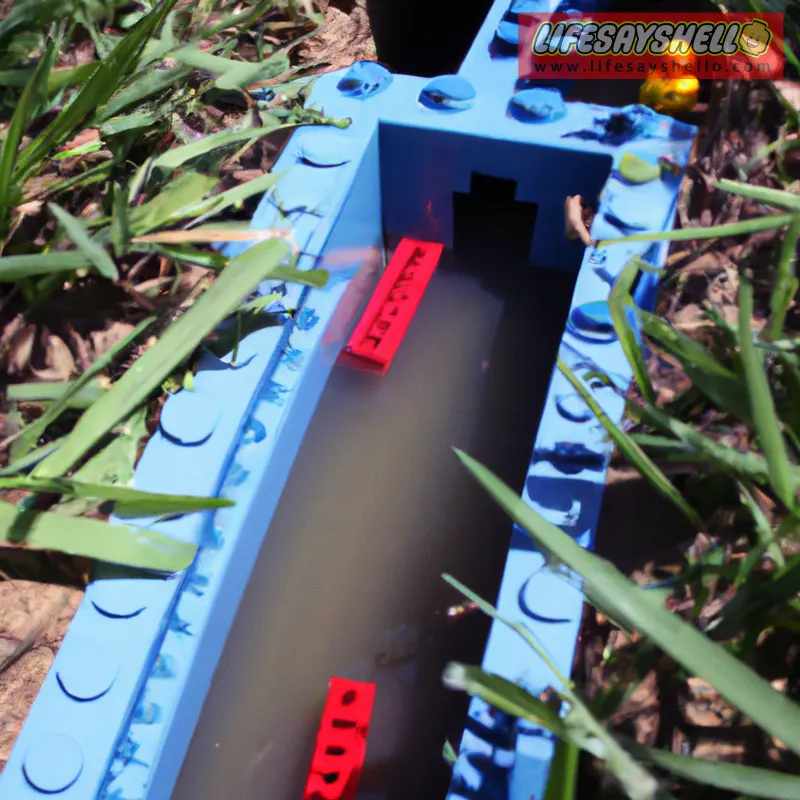Who is Responsible for Maintaining Drainage Ditches? Unraveling the Mystery

Have you ever wondered who is responsible for maintaining those vital drainage ditches that protect your property from flooding and erosion? Look no further! This comprehensive guide will help you unravel the mystery and understand the ins and outs of drainage ditch maintenance responsibilities.
Introduction
Drainage ditches play a crucial role in our everyday lives, even if we don't always notice them. These artificial channels are designed to collect and convey excess water runoff from roads, fields, and other areas, preventing flooding, erosion, and water pollution.
But who exactly is responsible for maintaining these essential water management systems? The answer is not always straightforward, as it depends on several factors such as the location, ownership, and purpose of the ditch.
In this article, we'll explore the different scenarios and responsibilities involved in maintaining drainage ditches, so you can be well-informed and prepared to take action if needed.
Drainage Ditches on Private Property
When it comes to drainage ditches located on private property, the responsibility for maintenance generally falls on the property owner. This means that if you own a piece of land with a drainage ditch running through it, you are responsible for ensuring that the ditch remains clear and functional. However, there are some exceptions to this rule.
In some cases, there may be an agreement in place between the property owner and a public agency or drainage district that states otherwise. These agreements can be formal or informal and may stipulate that the public agency or drainage district is responsible for maintaining the ditch on the private property. If you're unsure whether such an agreement exists for your property, it's essential to consult with the relevant public agency or drainage district to clarify the situation.
Drainage Ditches on Public Land or Right-of-Way
When drainage ditches are located on public land or within a public right-of-way, the responsibility for maintenance typically lies with the public agency that owns or manages the land. This can include city, county, state, or federal government agencies. These agencies have a vested interest in ensuring that drainage ditches remain clear and functional to protect public infrastructure and property from flooding, erosion, and water pollution.
In some cases, the responsibility for maintaining a drainage ditch on public land may be shared between multiple agencies or entities. For example, a city may be responsible for maintaining a ditch within its city limits, while the county or state may be responsible for maintaining ditches outside the city limits or along state highways. It's essential to consult with the appropriate public agencies to determine the specific responsibilities for drainage ditch maintenance in your area.
Drainage Ditches as Part of a Larger System or Network
In some cases, drainage ditches may be part of a larger drainage system or network, such as a watershed or regional stormwater management system. In these situations, the responsibility for maintaining the drainage ditches may fall on a drainage district. Drainage districts are special entities created by law to manage water resources within a specific area, and they may have the authority to levy taxes, collect fees, or impose assessments on property owners within their boundaries to fund their operations and maintenance activities.
If your property is located within a drainage district, it's essential to understand the specific responsibilities and requirements of the district when it comes to maintaining drainage ditches. This may include regular inspections, maintenance schedules, or reporting requirements for property owners. Be sure to consult with your local drainage district to ensure you are in compliance with their rules and regulations.
Property Owner's Cooperation with Responsible Parties
Regardless of whether a drainage ditch is located on private property, public land, or within a drainage district, property owners who benefit from the ditch have a responsibility to cooperate with the relevant parties to ensure that the ditch remains clear and functional. This cooperation can take several forms, including:
- Keeping the drainage ditch clear of debris, vegetation, or other obstructions that may reduce its effectiveness or cause damage.
- Monitoring the condition of the drainage ditch and reporting any issues or concerns to the responsible parties.
- Complying with any maintenance schedules, inspections, or reporting requirements established by the responsible parties.
In addition to these general responsibilities, property owners who wish to modify, fill, or alter a drainage ditch should consult with the responsible parties before doing so. This may include obtaining permits or approvals from the responsible parties or other regulatory agencies. Failure to consult with the responsible parties before making changes to a drainage ditch can result in fines, penalties, or legal action.
Seeking Legal Advice and Contacting Responsible Parties
If you have questions or concerns about drainage ditch maintenance responsibilities, it's essential to contact the responsible parties directly or seek legal advice if necessary. This can help you clarify your responsibilities, understand any legal requirements or restrictions, and ensure that you are in compliance with all relevant rules and regulations.
In some cases, disputes may arise between property owners and responsible parties regarding drainage ditch maintenance responsibilities. If you find yourself in this situation, it's essential to seek legal advice to understand your rights and options. A qualified attorney can help you navigate the complexities of drainage law and ensure that your interests are protected.
Conclusion
Understanding who is responsible for maintaining drainage ditches can be a complex and sometimes confusing process. However, by familiarizing yourself with the various scenarios and responsibilities outlined in this guide, you can be better prepared to handle any drainage ditch maintenance issues that may arise on your property.
Remember, keeping drainage ditches clear and functional is essential for preventing flooding, erosion, and water pollution, so it's crucial to work together with the responsible parties to ensure that these vital water management systems remain in good working order.




Comments